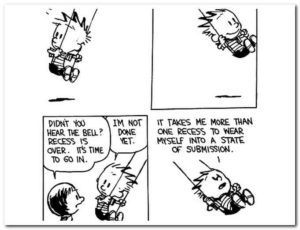Please click on a title to skip to the article you want; or, simply scroll down the page to view them all in order.
Featured Article:
Other Features:
Love Changes Everything
by Oliver and Rachel DeMille
 Exhibit A: Thirteen-year-old son loves to study math. Loves to read big books full of big ideas. Loves sports, movies and choir. Loves to play with his little brothers and sisters. Likes activities with his friends several times a week, but doesn’t let them get in the way of his studies or family. Loves school, social events and challenging new topics. Is happy to help out with housework. It isn’t surprising to hear him say, “Hey, Shawn, I’d love to go out for ice cream, but we did that yesterday and I really need to study tonight. How about Saturday?”
Exhibit A: Thirteen-year-old son loves to study math. Loves to read big books full of big ideas. Loves sports, movies and choir. Loves to play with his little brothers and sisters. Likes activities with his friends several times a week, but doesn’t let them get in the way of his studies or family. Loves school, social events and challenging new topics. Is happy to help out with housework. It isn’t surprising to hear him say, “Hey, Shawn, I’d love to go out for ice cream, but we did that yesterday and I really need to study tonight. How about Saturday?”
Exhibit B: The typical American Teenager.
“The boy in Exhibit A isn’t real,” you might be saying. Or: “He must be maladjusted.” In fact, he is socially popular, a natural leader, and secure in who he is—even at thirteen. “He must me some kind of genius, then,” you say. Actually, he is a regular kid who happens to be in love with learning.
Love changes everything.
Every thirteen-year-old loves something. And her high school years will be largely determined by her loves. Some love sports, others love theater or vocal performance, and still others loves science fiction, chess club or a certain music group. Some are in love just with being popular, whatever that requires of them.
But “Exhibit A” youth do exist. In fact, there are a lot of them. They didn’t suddenly awaken at age 13 this way, however. They became this way mainly between ages 8-12. This is when they fell in love with that “something” which will determine their area(s) of focus as teens.
Unfortunately, our modern conveyor-belt style of schooling too often teaches preteens the following lessons:
 School isn’t fun
School isn’t fun- Leave your studies until the last minute
- Math is boring and irrelevant
- Do the bare minimum in your school work so you can focus on things you really like
- Little brothers and sisters are pests
- Big brothers and sisters aren’t reliable like your friends
- Parents, ditto
- Parents just don’t understand me
- Teen culture is real life
- Deep study of academic topics isn’t cool
- Hard things aren’t fun
- Textbooks are the source of knowledge
The list could go on and on. And let’s be clear, the student in Exhibit A was exposed to all these lessons too. But he was also exposed to something else; and as a result, he fell in love with learning.
Loving learning changes everything else about life. A youth with this skill avoids the cliques and pigeonholing. She loves learning: through math, science, history, literature, sports, socializing, theater, choir, chess, fashion, technology, popularity, non-popularity, and everything else. She knows how to learn from the events that bring tears and those that bring laughter.
She knows how to go truly deep in topics of interest, and how to fall in love with hard subjects and classes that at first seem uninteresting. She knows how to learn from good teachers, poor teachers and great teachers, and how to turn books, assignments, events, friends, clubs and activities into mentors. She knows how to make math, textbooks, siblings and parents into fun teachers and confidants.
All of this from one skill? Yes! Love of Learning is that powerful. If a young person falls truly, deeply in love with learning during this time, the stage is set for her high school and college studies and activities to flourish.
The reason for this is so simple as to surprise many of the “experts.” When students are forced, pushed, prodded, manipulated and required to learn in school, an interesting thing happens—they start to dislike the learning process.
Imagine if you were treated at work the way many kids feel treated in their schooling experience. What attitudes and habits would you be inclined to adopt? Would you become defensive? Apathetic? Rebellious? Withdrawn? Jealous? Insecure? Petty? Competitive? Anti-social? Non-conformist?
Hmmm. Sounds like the stereotypical American Teenager. And do you suppose that our youth are more or less inclined than an adult to adopt such responses to a scenario where they feel marginalized, subjugated, manipulated, and so forth?
Now: Imagine that you are independently wealthy but you go to your same work and life to learn what makes people tick. Nobody knows you are wealthy, so they treat you the same as they always have—but your response is one of abundance, wisdom and patience, because you do not feel dependent on the system, and you are able to engage it on your own terms. You do not feel victimized or disempowered; you know why you do what you do. Whatever you learn at work, you apply to increasing your wealth and to improving the lives of others. And it works amazingly.
This is similar to what happens when a student falls in love with learning. Every experience has meaning. Every topic, lesson and person is fulfilling. School is so fun! Activities are exciting. Hard new topics are exhilarating challenges.
This is the aim of Leadership Education. This is the rule of thumb: If you want to help your kids flourish in their studies and minimize their teenage-stresses, find ways to help them fall truly in love with learning. How? Like every great undertaking, there are principles that govern our success; and understanding them makes all the difference.
The Love of Learning Phase
Following a successful Core Phase, a child will naturally transition to what we call “Love of Learning.” These are the years when children dabble with learning, getting to know “what’s out there”. If they have emerged from the Core Phase in good order they are usually fearless—feeling like almost everything will be interesting and believing that they will be able to do whatever they set their minds to.
In Love of Learning Phase, the child builds upon the foundation of the Core Phase and continues on to form his assumptions of identity and community. The Love of Learner is ripe for exposure to the many areas of human knowledge, with a focus on that which he can experience on his level.
It is during these years that the child will start to become aware of gifts and interests that will help guide educational paths and begin to hint at the life’s goals and mission. Sometimes these interests are stepping stones or whimsies, sometimes the beginnings of a life-long vocation; neither is more valid than the other to justify following an interest. Parents do well to encourage the child to guide himself by this inward sense of direction, and to model the same in their own activities and choices.
Standards
 During Love of Learning, special care should be taken to allow for personal expression without negative feedback. By this we do not mean that there is no discipline in the home. In the areas of family routine, house rules and contributing to the running of the home and family, standards and consequences are essential to the child’s sense of security and accomplishment. But in the areas of exploration and skills building, the parent/mentor should be wary of establishing premature or arbitrary standards of “correctness” on points that will later be obvious and require no criticism or intervention whatsoever.
During Love of Learning, special care should be taken to allow for personal expression without negative feedback. By this we do not mean that there is no discipline in the home. In the areas of family routine, house rules and contributing to the running of the home and family, standards and consequences are essential to the child’s sense of security and accomplishment. But in the areas of exploration and skills building, the parent/mentor should be wary of establishing premature or arbitrary standards of “correctness” on points that will later be obvious and require no criticism or intervention whatsoever.
For example, the requirement to subject a daily journal to proofreading can stifle a love of self-expression. To constantly make an issue of numbers printed backward (when you could say, “Look how nice and round you made that part!”) can leave a child feeling defensive toward the very person she should ideally look to for help when she later has a desire to “do it right” or wants to make a good impression with others who may view her work.
High standards of quality are learned in the early years through family work and routine rather than in perfectionism in academic skills. Later, in Scholar and Depth Phases, the temperament and aptitude of the student not only allow for serious critique and review, they require it.
Peers, Parents and Projects
During these years peer involvement is carefully filtered and is ideally either an extension of whole-family relationships or, with intention, grows into them. In other words, the young child’s companions should be from that group of families that the parents trust and identify with. For example: If my child discovers a significant friendship from outside our circle of influence, that new friend’s family could become the object of outreach so that a whole-family relationship can be developed and the new family can be invited into the fellowship of the family’s community of friends.
Reading together as a family, and the child reading alone and discussing with the parent, are two very common activities during this phase. Writing skills are developed in the keeping of a personal journal, correspondence with friends and loved ones, and creative writing. The parent should be imaginative in offering opportunities to relate everyday life with books read, historical and current events and the operation of scientific and mathematical principles—without “taking over” the child’s interests and exploration.
The use of project learning is an incredible way to invite the child to venture into new areas of learning. You can start with almost any subject of interest, and with enough ingenuity you can arrive at any other discipline from music to science to math to economics to biology to history to world religions to future trends, and so on.
The goal to relate the child’s daily experiences and study with the rest of the body of human knowledge and achievement make obvious the need for the parent to put a great deal of energy into his or her own education rather than making the child “the project”. This is more consistent with natural law that one can only change one’s own self and—bottom line—it is much more effective to lead than to steer such an enterprise as the education of a child. The parent should be diligent in self-education so that the child cannot help but internalize the value of self-improvement and the obligation of the individual to be serviceable to his God and his fellowman.
Simplicity
To do all this necessitates that the home life and family’s time be kept as uncomplicated as possible. Too many outside activities, no matter how valuable or interesting, can be over-stimulating for the child and draw him or her much too soon away from the ties that bind him to the nest. There will come a time when such activities are the ideal; they should be carefully considered at any stage, and deliberately limited in Core and Love of Learning Phases. Such a “vacuum” is a necessary element of Love of
Learning often begins when a child sits around for a while wishing for something to do. Thus we see the problem with filling up his time and space with commitments and diversions.

This can be difficult to avoid, especially when we as parents are unprepared for the peer pressure (not the children’s peers so much as the parents’!) that may be leveled at us. When “every” other boy and girl is in *** (soccer, dance, little league—you fill in the blank) it’s hard to justify a decision to use that time to do relatively… “nothing”. And this is not to say that any of those or other similar activities is inherently wrong for an individual child.
These decisions must be carefully considered; the time spent at home in simple, “homely” activities is irreplaceable, and needs to be held in greater esteem and higher priority against the more stimulating activities that society insists should fill our children’s and family’s lives.
It’s okay to stay home! We just need to own our role to fill our homes with wholesomeness, warmth and light.
~OD & RD
For a detailed treatment on nurturing the Core and Love of Learning Phases, see Leadership Education: The Phases of Learning and Core and Love of Learning Seminar Highlights.
*********************
********************
Resources to Leverage Your Success

- List of Classics (Family Reading, Adults, Kids, Math Lists, Biblical Highlights and more!)
- This Week in History
- TJEd High!
- Mentoring in the Classics
- Free PDFs
- TJEd on Facebook
- TJEd Products
